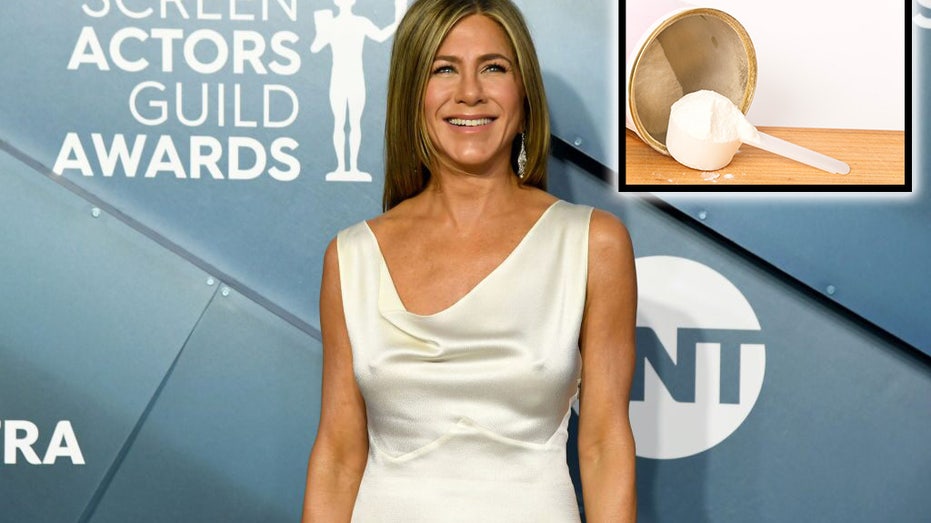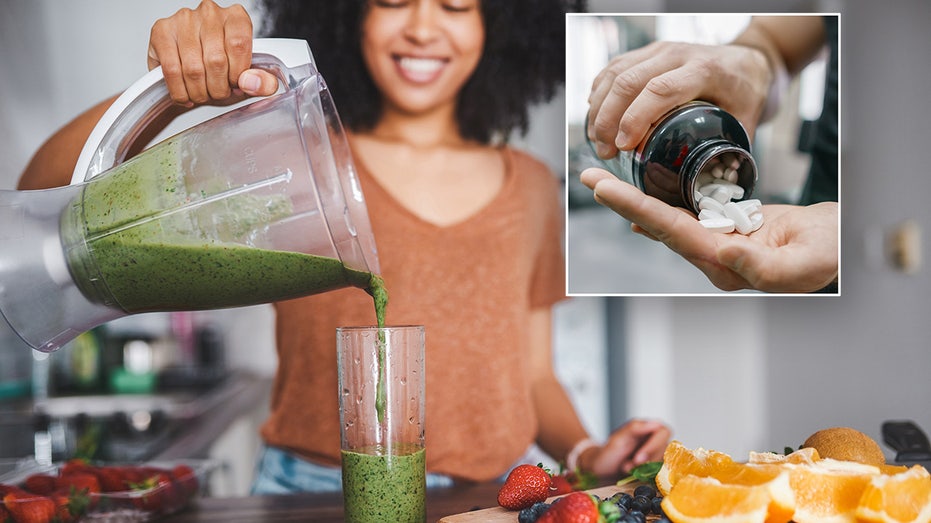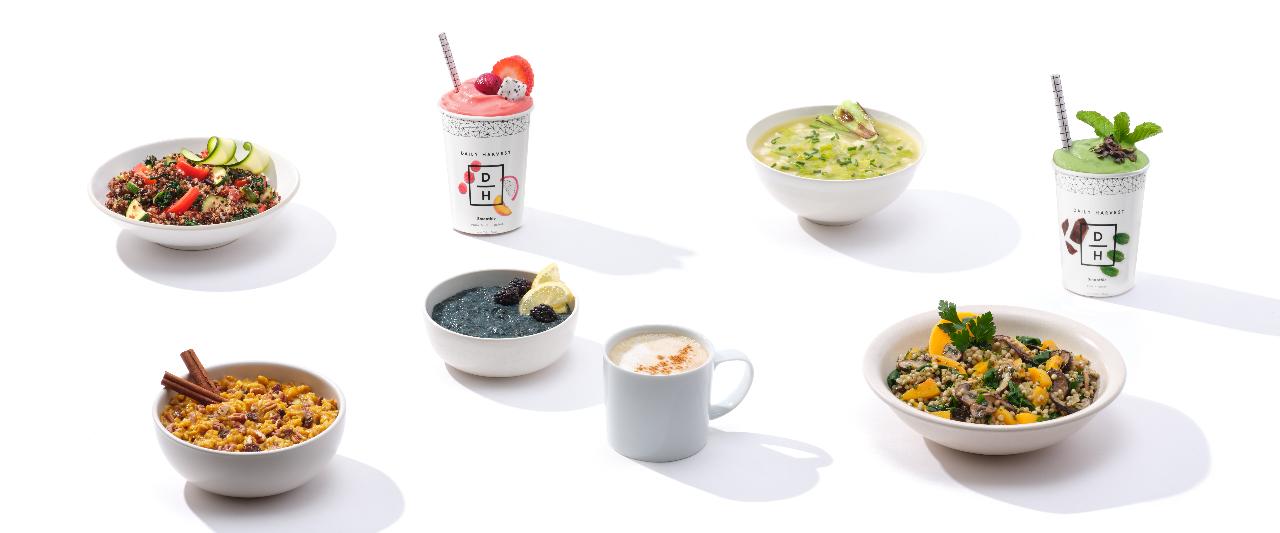Collagen product sales spike on America's desire to look young
Supplement craze soars with endorsements from Jennifer Aniston and Kourtney Kardashian
Collagen is giving food products a lift.
The protein that gives skin its strength and elasticity and is said to fight wrinkles has become as ubiquitous as CBD, the non-psychoactive chemical in marijuana, with supplements like pills, powders and creams saturating the beauty industry. Now, it’s being marketed as a fountain-of-youth miracle additive in sparkling teas, coffee pods, gummies and smoothies. And while food companies and celebrities such as Jennifer Aniston have jumped on the bandwagon, some dermatologists say buying the products is a long-term investment.

Jennifer Aniston is a fan of drinking collagen-packed smoothies. (Getty Images)
“I was skeptical initially,” said New York City-based dermatologist Dr. Jody Levine, who says consumers need to be sure they’re getting enough actual collagen in each serving to see results. “The only products in my mind that are most helpful would be the ones that have 10,000 milligrams of hydrolyzed collagen; that’s the recommended amount per day that someone should have."
JENNIFER ANISTON'S DIET FOR A CLOSEUP-READY PHYSIQUE
Vital Proteins, a creator of collagen protein, holds the No. 1 U.S. market share and is dominating the category that’s slated to hit $7.5 billion globally in the next several years. It contains 20,000 milligrams of collagen per serving, more than Levine’s recommended daily amount.
Stars like Jennifer Aniston and Kourtney Kardashian swear by the $25 powdered supplement they blend in their morning teas and smoothies for a skin awakening. As more products try to tap into the market, some brands are even gulping up smaller beverage lines that have the protein additive.

The collagen market is slated to hit a reported $7.5 billion globally by 2027.
SkinTe, a brand of collagen sparkling tea beverages that come in flavors like green tea grapefruit, white tea ginger, and hibiscus vanilla to mask the otherwise unpleasant taste of natural collagen, promises “liquid radiance” for “great skin, hair, and nails," according to its website. Each contains 3,000 milligrams of collagen peptides and herbs. But they don’t come cheap – a package of three, 12-ounce cans cost $15.
Water brand Flow, known for its alkaline water, acquired Boons Collagen Water this month. Each 17-ounce flavored water, with varieties from cucumber to citrus and pink grapefruit, comes with 10,000 milligrams of collagen protein, no sweeteners and zero calories. Flow polled consumers on which ingredient they’d like to see in its production line and 65 percent said collagen, its chief executive officer Nicholas Reichenbach told Bevnet.
While collagen comprises up to 80 percent of skin, people's bodies begin trimming production of it as soon as the early 20s. Levine says dry skin, overexposure to sun and pollution can also escalate the breakdown of collagen.
Hydrolyzed collagen, referred to as collagen peptides in supplements on the market, is made of the same amino acids found in collagen and can be easier to digest. While there are hardly any known risks from consuming collagen, some supplements are made with food allergens like shellfish, eggs and fish.
Analysts say the collagen craze lends itself to the functional beverage trend, in which consumers are looking for drinks that have health benefits, such as probiotics in kombucha (fermented tea) to help gut health, anti-inflammatory benefits from turmeric teas or antioxidant-rich matcha green tea.
“Over the last decade, we’ve seen consumers pull back from carbonated soft drinks and fruit juices and go for beverages that have an enhancement without the sugar,” said Darren Seifer, a food and beverage industry analyst at the NPD Group. Tea is a beverage category that has leaned into the health trend, he added.
"Tea is one of those categories that has really proliferated with one of these health and wellness benefits. It's not just your Earl Gray and English Breakfast anymore. It's teas that help you relax, digest and work with inflammation so it's not just about enjoying the tea but enjoying the tea with a benefit."
“Over the last decade, we’ve seen consumers pull back from carbonated soft drinks and fruit juices and go for beverages that have an enhancement without the sugar."
Levine says taking collagen in a liquid format may be most effective.
"A liquid is more readily absorbed by the body than a tablet or a powder. If I were to go after one kind of collagen supplement, I would choose a drink that has hydrolyzed collagen," Levine said.
THE HOTTEST FOOD, DRINK AND WELLNESS TRENDS FOR 2020
Research suggests that consuming collagen regularly can improve skin elasticity and decrease dryness. Women who took a supplement containing 2.5 to 5 grams of collagen over the course of an eight-week period experienced less skin dryness and found an increase in skin elasticity compared to those who didn’t take it. But Levin says not enough research has been put out to really determine how effective taking collagen as a daily supplement is.




















